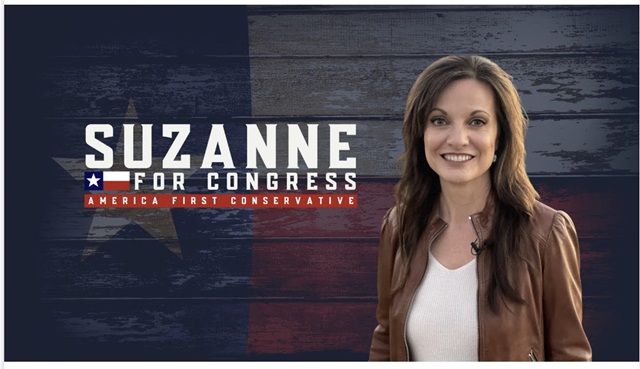The TikTok Tussle of Concerns and Legislation

The TikTok Tussle of Concerns and Legislation
BY SUZANNE HARP
Currently, the TikTok ban debate is swirling through the USA and raising concerns about national security and parental frets. Like vigilant conductors, the concerned moms lead the chorus against TikTok’s potential negative influence on their children.
The composition includes worries about inappropriate content, age appropriateness, psychological impact, behavior influence, and safety, as well as the content maestros at TikTok potentially exposing their little ones to unsuitable tunes. Indeed, on the parental front, it is the age-old melody of parental anxiety that echoes, questioning the appropriateness of content and its potential influence on the impressionable minds of children.
A trio of lawmakers is tuning their instruments to legislate a ban on TikTok. The proposed bill to ban TikTok, known as the RESTRICT Act, aims to prevent transactions with social media giants from countries deemed foreign adversaries. The bill seeks to empower the Secretary of Commerce to decide which technologies Americans can or cannot access, and it could potentially exempt lawmakers from providing details about their decision process.
A new movement begins as lawmakers draft legislation forcing app owners to disclose ownership information. Transparency becomes the critical refrain, potentially harmonizing trust among users and attracting a larger audience to the app.
In the ongoing symphony of the TikTok debate, the security movement takes the lead, orchestrating concerns about data safeguarding from the Chinese government. The FBI has also raised the curtain on national security concerns surrounding TikTok’s U.S. operations. The potential for the Chinese government to sway American users or gain control over their devices is immense. FBI warnings give rise to apprehensions about data collection, algorithm manipulation, and the ominous prospect of device compromise on a massive scale.
The ability to compel data sharing upon request and concerns about gathering intellectual property and personal data add a dissonant note to the melody. TikTok, owned by China’s ByteDance, acknowledges a potential breach in fortifying U.S. user data by allowing non-U.S. employees access – a revelation that resonates like a haunting refrain.
However, there are several legal and constitutional challenges to this bill. The First Amendment protects American freedom of speech, and the Berman Amendment restricts the President’s power to regulate or forbid the free flow of information in and out of the country. These laws make banning TikTok for all American citizens an unconstitutional decision. Another critical point is who owns the data garnished from these apps or any other platform? I strongly believe Congress should pass laws or a Data Bill of Rights into the constitution as inherent no different than our identity or image.
Moreover, the RESTRICT Act could be used to challenge these constitutional protections. It would require any ban to be justified by a significant governmental interest and would have to be narrowly tailored to address that interest. This means that ByteDance, the Chinese-based company that owns TikTok, could easily challenge a possible ban in court on constitutional grounds.
China’s National Intelligence Law, a law with an absolute stance on supporting national intelligence efforts, injects an element of suspense. Skepticism surrounds the law’s potential for punishment, raising questions about the compliance dance that foreign and domestic firms may be forced to perform.
The symphony turns unexpectedly as critics argue that the data issue is merely a prelude. The genuine concern lies in TikTok’s potential to manipulate opinions, a potential front-runner in controlling political discourse. The platform’s influence on shaping public sentiment becomes a haunting refrain in the minds of skeptics.
The accusation that TikTok allows access to American data, including sensitive biometrics, heightens the concerns about national security. The risks posed to individual privacy and the broader national security landscape amplify the circumstances surrounding this digital symphony.
Amidst the security overture, proposed legislation emerges as a regulatory intermezzo, introducing potential impacts on app owners and their operations. This legislative sonata could reshape the tech industry’s landscape in significant ways.
The curtain rises on the Increased Transparency Act. App owners may need to pull back the curtains on their ownership structures and operational bases, creating a more transparent tech industry. This shift could harmonize trust among users, potentially attracting a larger audience to the app.
The demand for increased regulatory compliance will only increase, and due to this, App owners may find themselves at the center of this regulatory maelstrom, necessitating robust data security measures and policy updates and potentially altering their business models. Like echoes through the concert hall, the impacts could be felt across financial, operational, and strategic dimensions.
The concerns and legislation continue as the TikTok turmoil reaches its zenith, leaving audiences anticipating the final movement. Will the security overture find a resolution, or will the discord persist, impacting the digital stage? Only time will tell as this intricate symphony unfolds its final notes.
ABOUT SUZANNE HARP
Suzanne Harp (Republican Party) candidate for election to the U.S. House to represent Texas’ 3rd Congressional District. She declared her candidacy for the Republican primary scheduled on March 5, 2024.
©2023. Amil Imani. All rights reserved.



 FROM THE DIRECTOR’S DESK
FROM THE DIRECTOR’S DESK